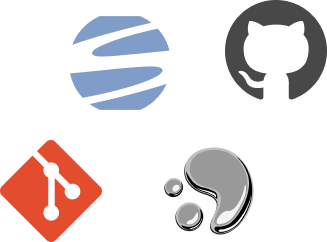
Benefits of Source Code Management
Complete version history
More effective collaboration
Workflow automation
Better communication
Graphic displays of code history
Generated release notes
Code backup
Pipeline analytics
Version Control

Version control is a revision control system designed to track changes to code over time. The term is often used interchangeably with source code management.
Version control is managed with version control software that tracks every code change in a special type of database. When developers save changes made to a file, the system retains — rather than overwrites — all the changes from every previous version of that file.

Maintaining a versioned record of all code changes in this way offers several benefits
-
It protects the source code:
Version control helps software teams manage source code and prevents it from being accidentally lost, deleted or otherwise compromised by human error.
-
Developers can compare or restore earlier versions of code:
With a complete history of a project's code, developers can compare the current codebase to previous versions to help fix mistakes. They can also roll back to an earlier version if their changes introduce a bug, for example, or if multiple changes conflict.
-
It allows developers to work independently:
Developers can work individually on their own code changes in their own workspace, then merge all their changes together and be alerted to any conflicts that need to be addressed.
Types of version control system:
-
Centralised version control systems
This maintain one copy of a project on a centralised server to which all code changes are committed. Developers can check out the specific files they need to work on, but never have a full copy of the project locally.
-
Distributed version control systems
Allow developers to clone the repository to their own local server or machine so they have the complete history of the project. They then clone the code they need to work on from this local copy of the master repository. When they're done with their changes, they commit them to their local source code repository, then “push” this local repository code to the master repository.
